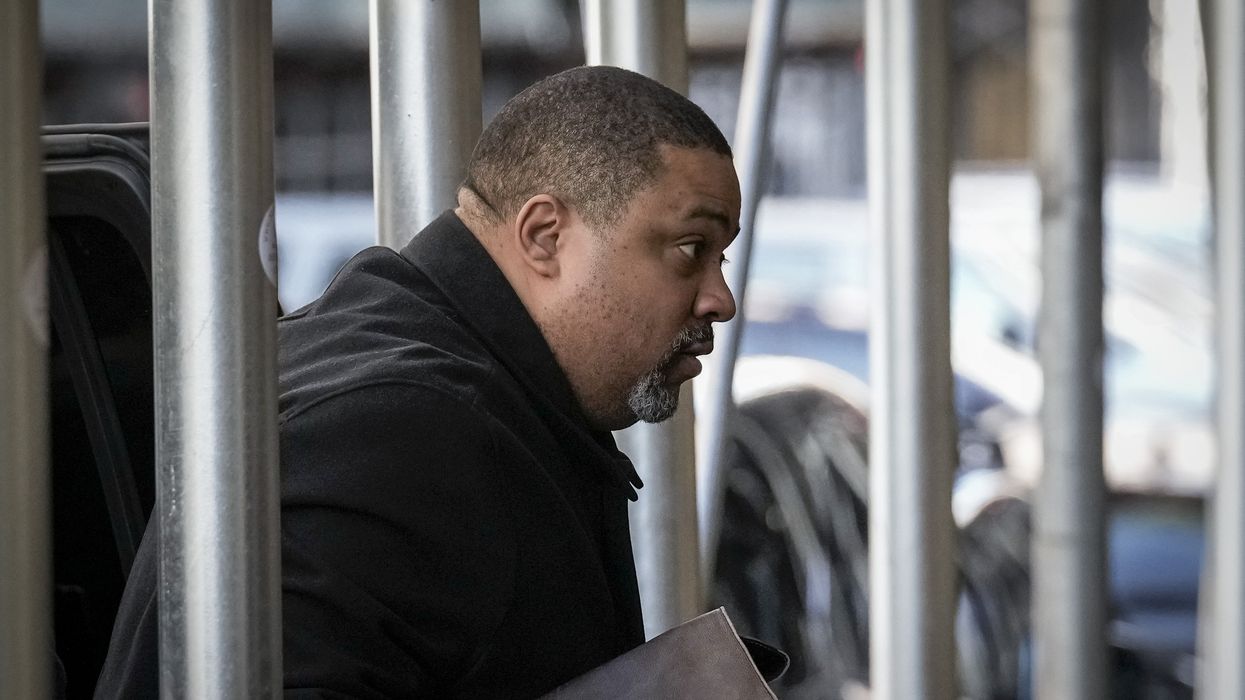[This post contains spoilers about the fourth episode of 'Homeland' season three.]
On the heels of my "Homeland" theory last week, Sunday's episode provided no answers about the future (or past) of Brody. Instead, we got two big reveals: Carrie and Saul's relationship is Not What It Seems, and Leo is Not What He Seems.
 This publicity image released by Showtime shows Mandy Patinkin in "Homeland." Credit: AP
This publicity image released by Showtime shows Mandy Patinkin in "Homeland." Credit: AP
We'll get to the two reveals, one of which some critics liked and others absolutely hated. But let's start with the practice of showrunners jumping to reveal the secrets immediately after the episode.
"Homeland" showrunner Alex Gansa spoke with (at least) two outlets even before the episode aired, for release immediately after the West Coast got to see that Carrie and Saul were actually, wait for it, working together this whole time. As Gansa put it to "Entertainment Weekly": "I was an amateur magician when I was in my early teens and my favorite magic tricks were always the ones where the magician makes the audience think he’s made a mistake. Then at the end of the trick you realize the magician has been ahead of you all the time. I hope we came close to that."
The problem with this analogy is even an amateur magician would know not to reveal his tricks. And it's also a total misjudgment of the audience to think we want to be tricked at all - twists are not tricks. The Carrie/Saul twist has "24" undertones - a sort of 'don't worry about how we got here, just go with it' vibe. And the payoff is the same as "24" (Gansa previously worked on "24") - it's great that Carrie is back working for the CIA. The show works best when Carrie and Saul are bringing down terrorists and working together. The path is the right one, but it was a bumpy, somewhat incomprehensible ride to get back on track.
So...how did we get here?
Carrie witnesses what looks like an exorcism at the hospital, and is more determined to leave. At a hearing to have her released, her dad and sister are no-shows (which she later finds out happened because they were told it was cancelled). Doctors vouch for her, but by the time we see Dar Adal lurking in the hallways, we know what will happen. She's a "security risk," and the judge forces her to stay.
And then, suddenly, she's out. Paul Franklin, that lawyer from last week, springs her from the hospital, in the hopes she meet with the mysterious Leland Bennett. Her bank accounts are frozen, credit cards cancelled. She calls her friend Virgil, but he's being watched as well.
The only other storyline besides a convoluted plot dump about soccer teams and goalkeepers between Saul and Fara as they follow the Javadi money was about Dana and her boyfriend Leo. She's his getaway driver as they break him out of his treatment center, and he smokes pot and tosses her cell phone out the window as they make their escape. Mike is back in the picture, helping Jessica cope. "I could kill him," she says of Brody.
There's a lot of emo-Dana Brody in this episode. But the big reveal number two was Mike finding info that may connect Leo to the death of his younger brother. This storyline, unfortunately, doesn't appear to be ending anytime soon.
Back to Carrie: she's on the run, shacking back up with liquor store guy, and robbing him of a few $20s in the morning. She goes to meet Bennett, and learns he's Javadi's lawyer, and that his terrorist client would like to "pick your brain." Carrie responds: "Sounds like you drunk the Kool-Aid."
Maybe he has, but also, he believes she's vulnerable and ready to turn against the CIA, because of their effort to "controversialize" her. They've turned her into the story, he says, and masked the issues behind the explosion with a campaign against her.
But as we learn in the next scene, Bennett was just half-right - Carrie was "controversialized," but only to get close to Javadi, his client. And when she tells Saul "it worked," it's clear they have been working together to accomplish this singular goal. It was a long way to get here, and the experience inside the mental hospital for Carrie did prove, as Saul puts it, she was "very, very brave."
It's a fruitless exercise to go back and try to connect the dots over when the plan was hatched. (Plus, Gansa says it happened before the season started, so every event during the nearly four episodes took place with Carrie covertly working for the CIA.) Her looking at the TV screen while Saul sullied her name in front on Congress - apparently just a reaction to the plan taking effect.
And so on. What's the point in looking back? Like "24" let's tick, tick, tick to the next episode, with Carrie back in the fold at the CIA.




